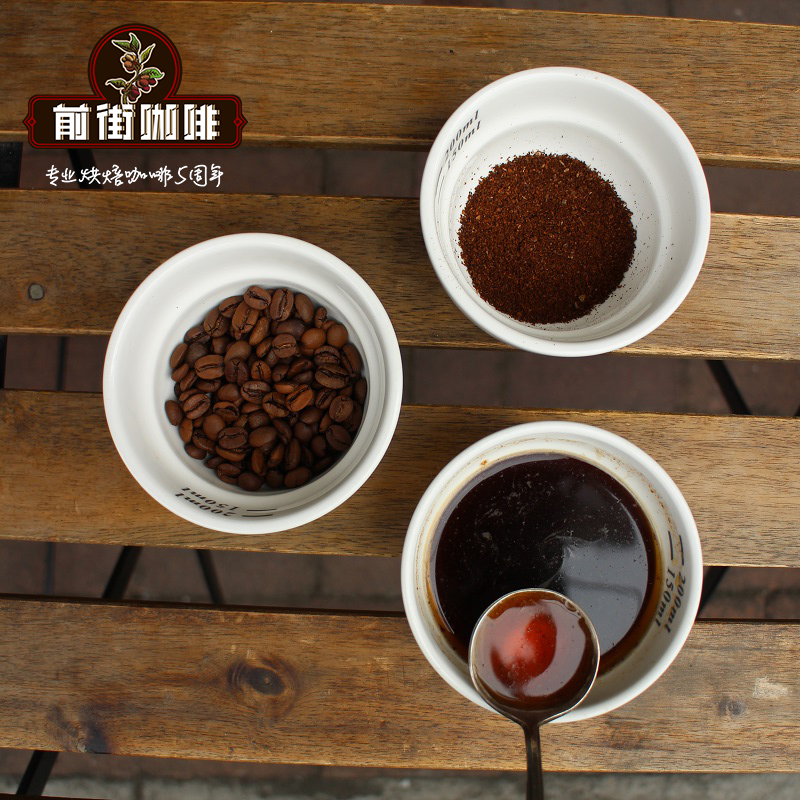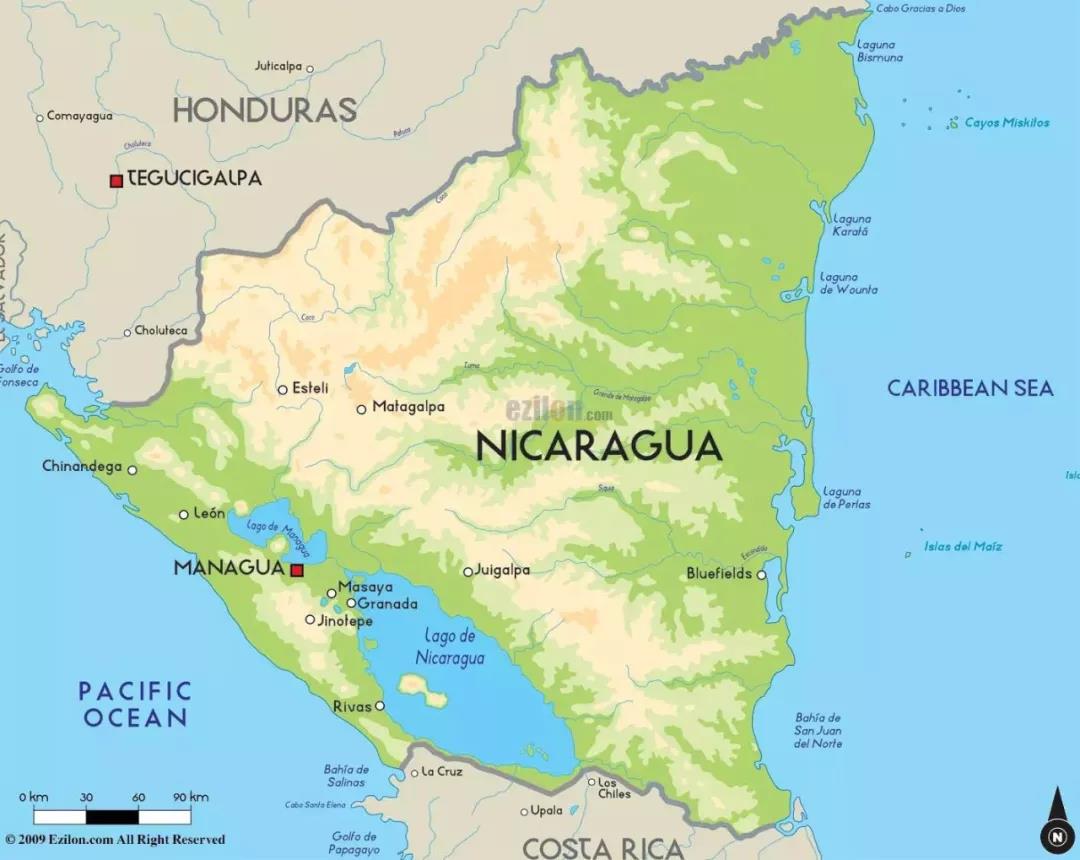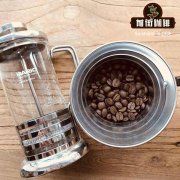How to evaluate the taste of Laos coffee? What is the unique flavor of Laos coffee? Whether it is good or not

Professional coffee knowledge exchange more coffee bean information please follow the coffee workshop (Wechat official account cafe_style)
How to evaluate the taste of Laos coffee? What is the unique flavor of Laos coffee? Is it good coffee?
Coffee is Laos's fifth largest export. The Boloven Plateau (Bolaven Plateau), located in the south, is the largest coffee growing area in the country, where about 95 per cent of Lao coffee is produced. The planting area is located at 15 degrees north latitude, from 600 to 1300 meters above sea level, covering an area of more than 500square kilometers, with abundant sunshine and Rain Water, cool temperature and slightly acidic fertile volcanic soil, which is a very good planting condition and has the potential to produce a large number of high-quality Arabica beans. Laos coffee is mellow with mild citrus and floral aromas.
In the 1920s, the French transplanted three varieties of coffee trees from Arabica, Robusta and Liberia from Vietnam to Laos. But the heavy frost in 1949 caused the death of a large number of coffee trees. Farmers abandoned disease-prone Arabica and cheap Liberia in favor of Robusta, which is more disease-resistant. According to 2001 data, 23000 households in 34000 hectares of agricultural land are engaged in coffee production, of which 88 per cent are Robusta and 12 per cent are Arabica. These include low-yield small farmers and systematically managed large manors. Most of the big manors have their own brands and processing plants. The Lao government cooperates with development agencies of various countries to introduce high-yielding Arabica trees with high yield and high quality into Laos to increase farmers' income.
The coffee harvest season is from October to February next year.
Laos was colonized by France in the past, which left the coffee culture, coupled with Laos's unique volcanic terrain, is the only plateau topography in Southeast Asian countries, fertile soil climate change is suitable for coffee bean cultivation, Laos is currently the largest coffee farmer, is Thailand's beverage business, but is invited to Taiwan's agricultural technical team to manage, although Laos coffee production in the world is not large But it was rated as a boutique, and TVBS partnered with World Magazine to take you to Laos to see the story of Laos coffee.
Laos is the only landlocked country among the 10 ASEAN countries that does not rely on the sea, with a population of nearly 6.6 million. It joined the ASEAN in 1997. Its economic growth rate has exceeded 6 per cent in each of the past 10 years, while the coffee grown in Laos, which is based on agriculture, has emerged in the international coffee market in recent years.
Machines are shuttling back and forth in such a large coffee garden, and mechanized coffee cultivation can only be seen in Laos in Asia.
The 3000-hectare coffee garden looks quite spectacular, but Laos does not produce much coffee in the world, but because of its unique geographical environment, its quality has become one of the best coffee products. "
Boutique coffee naturally has a unique flavor, multi-level taste makes Laos coffee unique.
Zhang Youtai, general manager of the coffee company: "it tastes like vanilla, chocolate and honey, which can be tasted after baking."
The variety of coffee here is mainly Arabica. Thai coffee merchants spent NT $1 billion five years ago to build the largest 3000-hectare coffee garden in Asia. Taiwanese were invited to lead the planning.
Zhang Youtai, general manager of the coffee company: "how are you going to deal with it? you can't see anyone in such a big (land). A machine can complete it. This is …" This is called a trick. "
Although it is not convenient for Laos to develop slow external transportation, God has given a fertile land that is very suitable for coffee growth.
Chang Cheng-Ming, an agricultural consultant from Taiwan, said: "Laos is a place with low latitudes and high elevations. the temperature difference between day and night is very large, between 10 and 20 degrees, so the quality planted, especially the varieties of Arabica, is very suitable here, so its quality is very good."
Coupled with the fact that there have been volcanic eruptions here, and the volcanic soil is rich in mineral nutrients, Laos coffee has a congenital advantage.
SINOUK, president of Laos Coffee Association: "Laos has a lot of land and is virgin land. The so-called virgin land is organic, has not been fertilized, and the soil is new."
The Lao government also stipulates that all crops are not allowed to use chemical fertilizers and must be taken care of very carefully.
Deputy general manager of the coffee company: "the saplings are about seven or eight months old, and about six leaves are ready to be planted in the soil. We will first put on a plastic mat, then dig a hole and plant the saplings into the hole."
In addition to laying plastic mats to prevent water evaporation, they also add silica gel to the soil in order to maintain soil moisture and survive the local dry season for half a year.
French guest: "the main coffee beans produced here are very interesting, delicious, interesting and special, unlike the coffee we drink in Vietnam or Africa."
Korean guest: "better than Korean coffee!" No matter in terms of taste, quantity and price, it is better than Korean coffee! "
Not only began to grow a large number of coffee, the streets of Laos also opened a coffee shop, the ASEAN economic integration has the advantage of duty-free, directly facing a huge market of 600 million people, but their ambitions are not only that. Regard the top Central and South American coffee as an imaginary enemy.
Zhang Youtai, general manager of the coffee company, said: "it will take you at least two months to ship from South America to Japan, but from Laos you can get to Japan in only seven days, so this transportation time, the time at sea these two months, you do not know how the quality will change, but the quality from Laos used to be very fixed."
The rising star of the Indo-China Peninsula and the smallest economy of ASEAN, Laos has created a boutique of the coffee market and began to integrate with the world.
Important Notice :
前街咖啡 FrontStreet Coffee has moved to new addredd:
FrontStreet Coffee Address: 315,Donghua East Road,GuangZhou
Tel:020 38364473
- Prev

Nicaragua Scenic Estates| Nicaragua COE fifth place, breaking the tradition of Maracadura
Professional coffee knowledge exchange More coffee bean information Please pay attention to coffee workshop (Weixin Official Accounts cafe_style) Nicaragua MARCATURRA SHB EP Nicaragua beautiful scenery manor 01| Nicaragua production area Nicaragua is mainly divided into four major production areas, Segovia (Segovias), Madagalpa/Jinotega (Matagalpa/Jinotega
- Next

Contemplative stories of coffee cultivation in Laos Coffee dao Coffee characteristics and Coffee Culture in Laos
Professional coffee knowledge exchange more coffee bean information please follow the coffee workshop (Wechat official account cafe_style) thought-provoking story of Lao Guo Coffee dao Coffee and Coffee Culture? Is the coffee good? Laos is a region once colonized by France, and the coffee industry in Laos can be traced back to the French colonial era 100 years ago, when the French
Related
- Detailed explanation of Jadeite planting Land in Panamanian Jadeite Manor introduction to the grading system of Jadeite competitive bidding, Red bid, Green bid and Rose Summer
- Story of Coffee planting in Brenka region of Costa Rica Stonehenge Manor anaerobic heavy honey treatment of flavor mouth
- What's on the barrel of Blue Mountain Coffee beans?
- Can American coffee also pull flowers? How to use hot American style to pull out a good-looking pattern?
- Can you make a cold extract with coffee beans? What is the right proportion for cold-extracted coffee formula?
- Indonesian PWN Gold Mandrine Coffee Origin Features Flavor How to Chong? Mandolin coffee is American.
- A brief introduction to the flavor characteristics of Brazilian yellow bourbon coffee beans
- What is the effect of different water quality on the flavor of cold-extracted coffee? What kind of water is best for brewing coffee?
- Why do you think of Rose Summer whenever you mention Panamanian coffee?
- Introduction to the characteristics of authentic blue mountain coffee bean producing areas? What is the CIB Coffee Authority in Jamaica?

